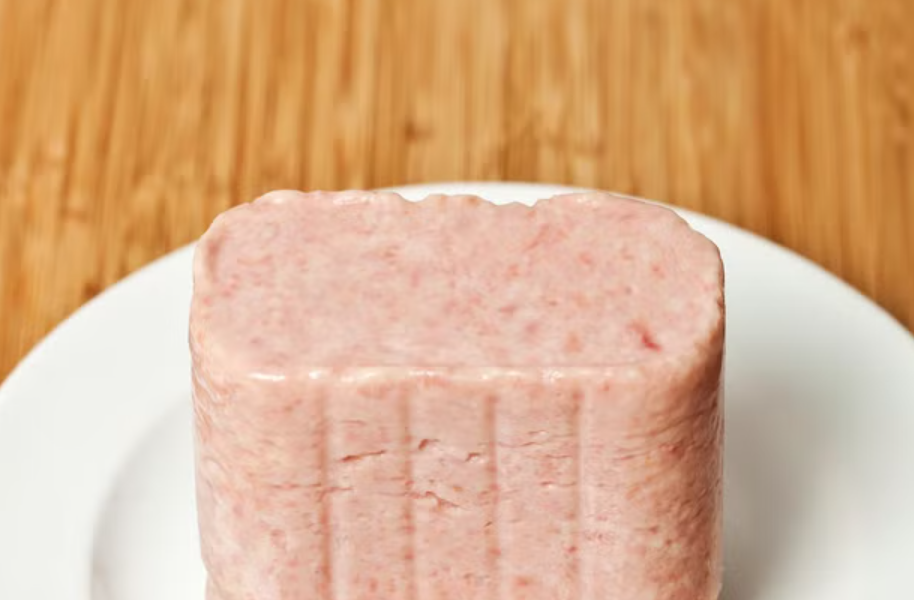Table of Contents
Are you in need of a budget-friendly dish but don’t know what to choose between luncheon meat and Spam? This can be a tricky decision, as both are widely available and economical choices. Thankfully, this post will delve into the pros and cons of each product so that you can make an informed decision about which one is right for your needs.
We’ll break down their nutritional values, taste profiles, cost comparisons, and more – all in order to help you find your perfect lunch companion! So read on to get the full scoop on luncheon meat vs Spam before heading off to the store!
What is Luncheon Meat?

Luncheon meat is a type of processed meat made from pork, beef, chicken, or turkey. It is usually sold in canned form and can be found at most grocery stores. Luncheon meat has been around for decades and is known for its convenience and affordability. It also comes in a variety of flavors, so you can experiment with different tastes and textures.
What is Spam?

Spam is a canned, precooked meat product that is made from pork, beef, or chicken. It was first introduced in 1937 and has been widely popular ever since. Although it is often associated with Hawaiian cuisine, it can be found in many supermarkets across the United States. Like luncheon meat, Spam comes in a variety of flavors and forms to suit your needs.
Luncheon Meat

Nutritional Facts
Luncheon meat contains high amounts of fat and sodium, which can lead to health concerns if eaten in excess. However, it is also a good source of protein and other essential vitamins and minerals.
Popularity & Availability
Luncheon meat is widely available and can be found in most grocery stores and supermarkets. It’s also relatively inexpensive, making it a popular choice among budget-conscious shoppers.
Uses & Recipes
Luncheon meat can be used in a variety of dishes, from sandwiches to casseroles. It is also commonly used as a pizza topping and for making soup.
Benefits & Drawbacks
The main benefit of luncheon meat is its convenience and affordability. However, its high fat and sodium content can be a drawback for those looking to maintain a healthy diet.
Spam

Nutritional Facts
Similar to luncheon meat, Spam is high in fat and sodium. It also contains fewer vitamins and minerals than other meats, so it’s important to factor this into your dietary considerations.
Popularity & Availability
Spam is widely available in most stores, although it may be more expensive than luncheon meat due to its popularity and brand recognition.
Uses & Recipes
Spam can be used in dishes such as fried rice, omelets, pastas, salads, sandwiches, and more. It also makes a great topping for pizza or toast.
Benefits & Drawbacks
The main benefit of Spam is its versatility; it can be used in a variety of dishes. The downside is that it is lower in nutritional value compared to other meats. Additionally, its high fat and sodium content can make it an unhealthy choice if consumed regularly.
Which One Is Healthier?

When considering luncheon meat vs Spam, it’s important to take into account its nutritional value and health benefits. Ultimately, the healthier choice will depend on your dietary needs and preferences.
For those looking for a low-fat option, luncheon meat is the better choice as it contains less fat and sodium than Spam. On the other hand, if you’re looking for more vitamins and minerals, Spam may be the better option as it contains more of these nutrients than luncheon meat.
Recommendations
When choosing between luncheon meat and Spam, it’s important to take into account your dietary needs and preferences. While both are convenient and affordable options for lunch, it is important to consider the nutritional values of each in order to make an informed decision about which one is right for you. If you’re looking for a low-fat option, luncheon meat may be the better choice; however, if you’re looking for more vitamins and minerals, Spam may be a better option.
Frequently Asked Questions | Luncheon Meat vs Spam
1. What is the main difference between luncheon meat and Spam?
The primary difference between luncheon meat and Spam lies in their preparation methods. Luncheon meat is typically made of finely chopped pieces of cooked pork or beef, while Spam is a canned product made from cooked pork shoulder, ham, water, potato starch, sugar, sodium nitrite, and other ingredients.
2. Is one healthier than the other?
In general, luncheon meat is slightly healthier than Spam because it contains fewer calories and fat per serving. However, both products are high in sodium content so it’s best to consume them in moderation if you are trying to watch your salt intake.
3. What is the difference in taste?
Luncheon meat has a slightly smoky flavor with a hint of sweetness, while Spam has a more salty and savory taste.
4. How can they be eaten?
Both luncheon meat and Spam can be eaten cold or hot, making them versatile ingredients for sandwiches, salads, omelettes, stir-fries and other dishes.
5. Are there any nutritional benefits?
Both luncheon meat and Spam are sources of protein and certain vitamins and minerals. However, they should ideally not be consumed as part of a balanced diet due to their high sodium content.
6. Is one better suited for particular types of dishes?
Luncheon meat can be used to add texture and flavor to a variety of dishes, while Spam is usually best suited for dishes in which it will be cooked or heated.
7. What is the difference in price between luncheon meat and Spam?
Spam tends to be more expensive than luncheon meat due to its canned form and additional ingredients. However, both products are relatively inexpensive compared to fresh meats.
Conclusion
All in all, when it comes to luncheon meat and Spam, it’s hard to say which one is definitively the better choice. Each has its own unique health benefits, as well as drawbacks that must be weighed before making a decision.
Read more at Ohsnap Cupcakes!